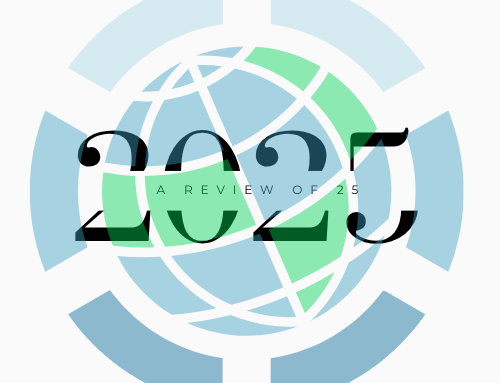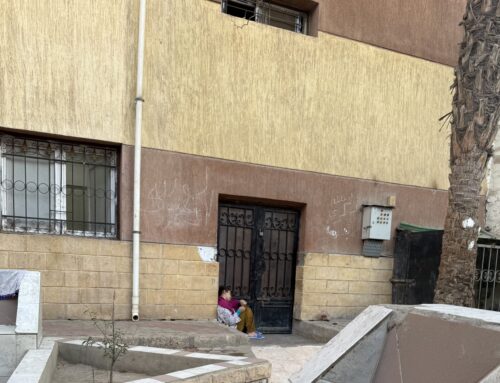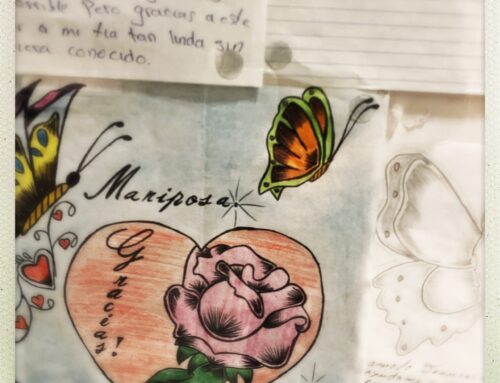
View of the Mediterranean Sea from the Maltese coast. Photo by Marthe Achtnich
The externalization of Europe’s borders, or the outsourcing of border control, has turned the sea along the central Mediterranean migration route into a lethal space of abandonment (see Heller and Pezzani 2017). Migrant reception is increasingly becoming hostile. Such borderwork, or “militarized global apartheid,” is characterized by countries in the global north protecting themselves “against the mobility of people from the global south” (Besteman 2020, 2). It also creates conditions for value to be extracted from mobile lives (Achtnich 2022; Andersson 2022; Green 2022; Lucht 2022; Reeves 2022).
An emergent argument within critical political economy is that border externalization creates a surplus army of workers deployed in precarious, often racialized, forms of labor (see Pradella and Cillo 2021). Such economic logics significantly enhance understandings of migration and its relation to contemporary capitalism in Europe. In this contribution, I further this argument by foregrounding visceral dimensions of these fraught mobilities. Doing so can reveal how the migrant body becomes crucial to the enactment of borders in a number of legal, medical and somatic registers, and can indicate the ways in which the labouring body becomes central to the economic arrangements through which value is generated from migrants’ lives. At stake here are both bio- and necroeconomies of mobility as outcomes of the contemporary governance of migration.
Consider Malta, an island and EU country where some migrants arrive after leaving Libya by boat, and where I have been conducting fieldwork for many years. A man from The Gambia, who had arrived in Malta by boat, reflected on processes that were not necessarily specific to Malta but exemplary of the perception of bordering practices in many places around the globe. “I am a migrant, that’s why they treat me like that. I have no passport.” He was referring to medical assessments, detention, extended waiting times to learn about the outcome of the asylum application, and difficulties finding legal employment. These measures of bordering and securitization were implemented not only by Malta, but many different countries, and take the body of the migrant as their locus.
Medical assessments after boat arrival included checking for wounds, illnesses, pregnancy, tuberculosis, as well as vaccinations. After detention, people moved to less carceral open centers where they were free to come and go, with some restrictions, but had to sign in regularly to receive a small financial governmental allowance. Their bodies were in pain, many of those living in such institutionalized structures told me. Not being able to eat food of their choice or move around as they would like took its toll: “The food here doesn’t give you strength.” They only slept and ate, one man said; there was “too much thinking.” Migrants often equated time with money (see Achtnich 2023). The man added that if you didn’t find work, the only thing you did was sleep. If Malta had a land border, he explained, no migrant would stay. It was important to work.
The arduous journey through Libya and across the sea, coupled with uncertainty about health checks and having to live in reception centers in Malta, took its toll. “Malta is not a country,” a man from Benin explained. “It’s not good here,” he said, deflecting his predicaments, brought about through borderwork, onto a country and place. “Even in my country I have never lived like this!” the man exclaimed. “Malta is like Africa. … It’s not Europe here.”
Medical surveillance is a crucial means of enacting bordering practices: the migrant body has to be isolated, quarantined or immunized before it can encounter the wider population, and long before it can labor. One man from Somalia received a Covid-19 vaccine a few months after arriving. He decided to get the vaccine because employers asked for a vaccination certificate. “The issue is that you need the vaccination for work,” he explained. For the state, a body that can work is a body that has been vaccinated. Within this regime of biosecurity, a working body has to be one that is not contagious.
Such health surveillance and confinement produce a temporal horizon of stuckness, where migrants’ legal status and the ability to work are often uncertain (Achtnich 2023). And yet, what one observes are the various ways people strive to convert their “dead time” of being a surveilled, semi-confined body, into “more or less productive time” (De Genova 2022, 139), where some avenues for earning are carved out, in spite of constraints.
Many migrants prioritized work over their own health—an act they justified by the need to provide for family abroad. This affected how they took medications for chronic conditions, for example, or went for health checkups. Their bodies were exhausted, many men told me, not dissimilar to what they had experienced in Libya. A man from Sudan had spent three weeks waiting in a house at the beach in Libya before their boat left. He then spent seven months in detention in Malta. “Why?” he asked. He worked and earned five Euros per hour. “It is not enough,” he said. “How to live?” Yet, striving to work was important, overriding concerns regarding health. “Work is better than not having anything,” another man from Sudan said. “You feel better.”
Dispossessing processes that happen through bordering practices are not solely for the creation of a new waged labor force, although this might indeed be the outcome (Pradella and Cillo 2021). They are also practices that create and maintain, inadvertently or otherwise, a population of “surplussed” people (Tadiar 2022). The latter’s lives hinge precariously between labor and the inability to realize their labor-power. It is a condition of being a worker whilst being unable to work.
If one aim of a critical interrogation of contemporary migration is to ask how mobile life becomes economized and how the extraction of value from life itself can be analyzed (Achtnich 2022), then examining the intersections between borderwork, labor, and the maintenance of a healthy, able body become important. These intersections reveal how the rendition of the body into a site of biosecurity (and therefore biopolitics) impacts how the body is able to labor (or not), and consequently on the ways migrants experience the everyday. The latter becomes a quest to generate productive time (as labor) amidst structural curtailments of mobility and, consequently, of the ability to work.
Such curtailment and suspension are outcomes of a carceral politics of keeping migrant populations at bay. The latter are biopolitical strategies in that they have to do with securitizing populations, but they are also necropolitical in that they disavow life (see Mbembe 2019). As much as we witness a bioeconomy of mobility—the quarantining of mobile bodies, the securitization of populations, and the enrolment of precarious migrants into regimes of cheap labor—what we are seeing is also a necroeconomy of mobility, where capacities to work and a denial of that capacity become part of a racialized economy seeking to profit from precarious lives. At stake is not just accumulation from life, but the generation of conditions that diminish life’s capacities. Migrants’ narratives reflect the frail means through which such life, and capacities, are reproduced.
References
Achtnich, Marthe. 2023. Mobility Economies in Europe’s Borderlands: Migrants’ Journeys through Libya and the Mediterranean. Cambridge University Press.
Achtnich, Marthe. 2022. “Mobile Livings: On the Bioeconomies of Mobility.” Cultural Anthropology 37(1): 1-8.
Andersson, Ruben. 2022. “The Bioeconomy and the Birth of a ‘New Anthropology’.” Cultural Anthropology 37(1): 37–44.
Besteman, Catherine. 2020. Militarized Global Apartheid. Duke University Press.
De Genova, Nicholas. 2022. “Viral Borders: Migration, Deceleration, and the Re-Bordering of Mobility during the COVID-19 Pandemic.” Communication, Culture and Critique 15: 139-156.
Green, Sarah. 2022. “The Bioeconomics of Domesticating Zoonoses.” Cultural Anthropology 37(1): 30–36.
Heller, Charles, and Lorenzo Pezzani. 2017. “Liquid Traces: Investigating the Deaths of Migrants at the EU’s Maritime Frontier.” In The Borders of “Europe,” edited by Nicholas De Genova. Duke University Press.
Lucht, Hans. 2022. “EU-Driven Border Control in Niger: From Migrants to Gold, Drugs, and Rare Animals.” Cultural Anthropology 37(1): 16–22.
Mbembe, Achille. 2019. Necropolitics. Translated by Steven Corcoran. Duke University Press.
Pradella, Lucia and Rossana Cillo. 2021. “Bordering the Surplus Population across the Mediterranean: Imperialism and Unfree Labour in Libya and the Italian Countryside.” Geoforum 126: 483-494.
Reeves, Madeleine. 2022. “Vital Labors: Transacting Oocytes across Borders in the Post-Soviet Space.” Cultural Anthropology 37(1): 23–29.
Tadiar, X. M. Neferti. 2022. Remaindered Life. Duke University Press.
Marthe Achtnich is Assistant Professor in Development Studies in the Department of Politics and International Studies, University of Cambridge. She is an anthropologist working on migration and mobility, with a focus on the lived experiences, economies and governance of migration. Her book Mobility Economies in Europe’s Borderlands: Migrants’ Journeys through Libya and the Mediterranean was published with Cambridge University Press in 2023.
Cite as: Achtnich, Marthe. 2025. “A Necroeconomy of Mobility”. In “Bordering and the War on Migration”, edited by Anna Simone Reumert, Wendy Vogt, and Charlie Piot, American Ethnologist website, 23 September 2025. [https://americanethnologist.org/online-content/a-necroeconomy-of-mobility-by-marthe-achtnich/]
This piece was edited by American Ethnological Society Digital Content Editor Kathryn E. Goldfarb (kathryn.goldfarb@colorado.edu).




